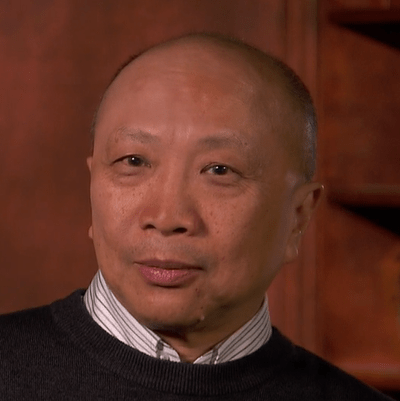Borqs Technologies (Nadsaq:BRQS) is a mobile virtual network operator (MVNO) in China. Borqs’ CEO Patrick Chan delved into his company’s role as an MNVO during a discussion with Executive Casts on December 7, 2017. He explains to investors the company’s arrangement with incumbent operators that enables them to circumvent infrastructure build-out and focus on building their brand and customer base. Please take a moment and listen to Mr. Chan as he covers:
- What MNVOs are.
- MVNOs from the customer’s perspective.
- The MVNO industry in China.
- How Borqs was able to become a top MVNO provider in China.
- Building a strong MVNO position amid competitive threats.
Also included are a few segments in which Borqs CFO Anthony Chan reiterates the company’s position as an early mover in China’s MVNO market segment and the opportunistic runway for growth as the second largest MVNO operator in that country.
What Is A Mobile Virtual Network Operator (MVNO)?
Pat Chan: MVNO stands for the Mobile Virtual Network Operator. Basically, it’s our operator. We have our SIM card with our brand name, we can define our data plan and voice plan, but we don’t have an actual need to build the infrastructure. We don’t have the switches, we don’t have the base stations and we, basically, rent the network services from the incumbent operator and we have our own sales channel, distribution channel, and our own brand to promote our products. Our products, basically, is voice plan and data plan.
Full Service MVNOs From The Customer’s Perspective
Pat Chan: In terms of MVNO, we are basically a full-service MVNO. Sometimes we call it MVNE, the mobile network operator enabler. Basically, we have the entire subscriber management billing system, the whole nine yards of how to manage the SIM card, the whole suite of the services, we have it in our services. From the external perspective, from the end customer perspective, there’s no difference between the MVNO which is a regular, lets say AT&T or Verizon as an operator. The only thing they don’t know is that sometimes, as an MVNO, the network, the elements, like the switches and the base station do not belongs to the MVNO. But externally from an end user perspective, there’s no difference from a regular incumbent operator at all.
How The MVNO Industry In China Is Different
Pat Chan: MVNO by itself is actually very mature in Europe and in US. In US, about 10 to 15% of mobile subscribers, they are actually MVNO subscribers. In Europe, there are about 30 to 35% of the subscribers are MVNO users. In China, it’s actually very new. In US and in Europe, the MVNO license has been granted for more than 30 years, but in China it’s a green field – it’s only about three years ago that the China government gave out the MVNO licenses. If you look at the numbers similar [to those] in the US or in the Europe, the industry is expecting that in China by the year of 2020, there will be 90 million mobile subscribers that are using MVNO services. This is a huge number as really like some major countries in the whole world. The market is very big and opportunities are a lot. And we are the number two MVNO network provider in China right now. The other thing that is quite different between Europe and US versus China is that in North America, in Europe, most of the people have only one SIM card, one phone number. Not like in countries like China, India, Latin America, a lot of the mobile subscriber have two numbers and three numbers. I, myself, I live in Hong Kong and I work in China. I got three mobile numbers. One of them is for my family, and the other one is for services, the other one is for other purposes as well. And then sometimes you use multiple SIM numbers, multiple SIM cards and phone numbers, in order to reduce the roaming charges as well. Therefore, the market opportunity is huge in that part of the region.
How Borqs Was Able Become A Top MVNO Provider In China
Pat Chan: We launched the MVNO service about three years ago and there are several reason why we are able to actually become number two as an MVNO in China. One of the key things is, how we work with our distributor and franchisee in China. China is actually very big. To have sales coverage to the entire Chinese actually very challenging and then what we do is we were a franchisee model that we actually do profit sharing with our franchisee to franchise out the sales of our data plan and voice plan – that’s one. The second thing is, the flexibility of our voice plan, the data plan, because rather then having, say, a fixed plan for each subscriber, the subscribers can do pay-as-you-go services. They have less burden and commitment at the beginning and of our data rate and for the voice rate is actually much more flexible than the incumbent operator.
China’s MVNO – Building A Strong Position Amid Competitive Threats
Pat Chan: As of today, there are about 30 MVNO licensees in China alone. Therefore, the market is actually growing rapidly. We do believe that we’ll continue to grow. After three years we are number two in China right now and we continue to see that our momentum of growth will continue and that’s very important because right now we are the second largest, the discount in terms of the data plan and voice plan the rate that we got from the incumbent operator is actually the second largest in the industry, in China MVNO. Therefore, the kind of offer we can give to our customers in terms of a price plan, the data plan is much more attractive than our competitors because we have a better rate from the incumbent operator.
I think [in terms of] the scale of the growth, because there’s a lot of people are trying to grow the market in terms of lot of marketing, a lot of sales promotion in China, there will be pressure in terms of gross margin in the business. But luckily in our Q3 reporting, we have reported that the Q3 MVNO, the gross margins of more than 30% is actually a very good margin.
Borqs’ Pricing Programs In The MVNO Segment
Anthony Chan: Our rates are lower than the carriers. I believe it’s very similar to situations in the United States and also in Europe that the buyers of MVNO are looking for discounts from the more standard programs that the main carriers offer and perhaps in secondary and tertiary cities that the incumbent carrier is less competitive. For example, our company carrier, in our cases China Unicom, when they make a program, that program becomes a nationwide program, but because of our flexibility we can go into a particular City and offer steeper discounts if we want to grow particularly in that geographic area. We have that ability to make adjustments to the pricing programs very rapidly and very accurately.
Economics Of The MVNO Segment, Borqs’ Comparative Advantages
Anthony Chan: The MVNO is a recurring business. We are, basically, resellers of mobile services, voice and data use and text messages. We get it on a wholesale rate from an incumbent carrier and as of right now, we are the second largest MVNO operator in China. The way it works – the amount of discount that we get from the incumbent carrier is based on the amount of activities that we generate for them on a monthly basis. The more we give to them the higher discounts that we get. So, we enjoy being the second position [in] that we do get steeper discount from the incumbent carrier than the third or the fourth or the fifth operator. We are able to maintain some comparative advantage in that way and then because of the scale, we expect our MVNO to be growing very steadily and we would enjoy that comparative advantage over the competition.
 Mr. Pat Chan
Mr. Pat Chan
CEO, Founder and Chairman, Borqs Technologies
Pat Sek Yuen Chan, is the founder and Chairman of the board of directors of Borqs Technologies, and since 2007 he has served as its Chief Executive Officer and President. Mr. Chan has over 20 years of experience in the mobile network communications sector. Prior to founding Borqs, Mr. Chan served as Senior Vice President and General Manager of the infrastructure business unit of UTStarcom Inc., a telecommunications equipment company, from 2000 to 2007. Earlier, Mr. Chan was an engineering manager in Motorola responsible for the development of the GPRS switching. Mr. Chan is an established entrepreneur and has received many awards, including the “High-Caliber Talent from Overseas Award” from the PRC government, and “2012 Beijing Entrepreneur of the Year”from Silicon Dragon.Mr. Chan received his bachelor’s degree in computer science from the University of Toronto and his master’s degree in computer science from the University of British Columbia.
 Mr. Anthony Chan
Mr. Anthony Chan
CFO and Executive Vice President, Borqs Technologies
Anthony K. Chan, is Borqs CFO and Executive Vice President, Corporate Finance and joined Borqs Technologies in April 2015. Mr. Chan has over 30 years of experience in U.S. and China cross border investments and business operations. From July 2013 until March 2015, Mr. Chan served as the President of Asia Sourcing for Portables Unlimited in New York, a distributor of T-Mobile USA. From March 2009 until July 2013, he served as the CFO for Tianjin Tong Guang Digital Broadcasting Co. Ltd, a mobile communications products company. For the 20 years prior to that, he was involved in multiple investment and technology transfer projects between China, the U.S and Europe, in the areas of communication products, chemical fibers, textile machinery and medical equipment. Mr. Chan received both his bachelor’s and MBA degrees from the University of California at Berkeley.